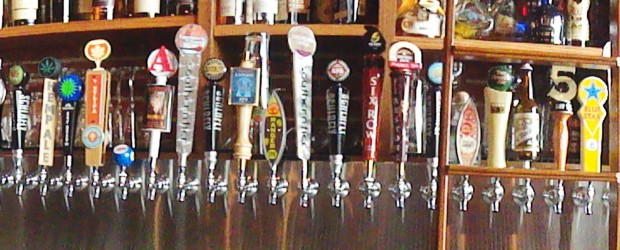There’s a lot of great information on the Briess website. A surprising about of information actually with everything from malt analysis to malt expected tastes to example recipes scaled at 5 gallon home brewer size. If you go here there’s a whole list of recipes for brewers to use. It’s one of the most useful websites from a big name supplier I’ve seen and a lot of fun. I spent a good hour here today just reading.
Bayou Beer
All about beer brewing and drinking in South Louisiana.
Tag Archives: beer recipes
What I Learned Screwing Up Two Pilsners I brewed in February
I learned a lot on my last two beers. I brewed two different pilsner recipes. One was a slight modification of a beer that was a big hit and the other was an attempt at one of Jamil Zainasheff’s well known recipes in the “Northern German Pilsner”. The two recipes can be found at the following links on Pocket Brewer where I post all my recipes for those who use my software:
A Modified (Saaz) Pilsdaddy Recipe
Here’s the things I did wrong:
- I boiled with the top on to reduce boil off. DMS
- I forgot my clarifying agent for these beers which need to be very clear.
- I had a seriously rolling boil which I learned was overkill later on.
- I used hop balls to reduce trub without adjusting the level of hops. Hop balls in my mind really reduce your IBUs. Both beers were so low on bitterness it’s not even like drinking a pilsner.
- I pitched warm then two weeks later I learned about not pitching warm.
- Louisiana weather shifted on my room holding my lagering freezer which totally screwed the temperature. The first two days the temperature was closer to 60 rather than the target of 50. Later I learned about how these non-digital Johnson temperature controllers are way off. I also learned that you should tape the sensor to the carboy. The bottom line is the higher fermentation probably contributed to ending up with not as clean a beer as I would’ve liked.
The end result was two somewhat cloudy beers which were more malty than bitter. The beers were actually very drinkable but they just weren’t pilsner. They display a light sweetness and not much bitter taste. It really reminds me of drinking some sort of mild tasting ale with high alcohol.
I have learned quite a bit on these two beers. Most was learned after the fact listening to The Brewing Network but learned none the less. I will re-brew the exact same recipes in a few months to see what the results are.
What’s funniest is that for about two years now I’ve been having great results brewing lagers but lately the results have gotten less desirable. It’s always been good beer but I didn’t get better results from the tweaks I made. Things like the lid on the brew pot and hop balls were attempts to improve but they made things worse. I am thinking keeping it simple and learning more about the science has helped me.
